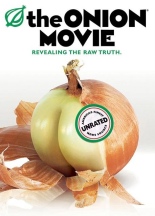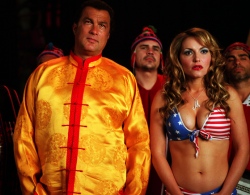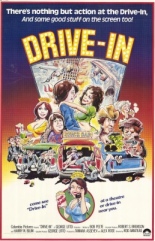
 Like a redneck version of American Graffiti, the relatively obscure comedy Drive-In chronicles one crazy day and night in the humdrum life of several residents, mostly high schoolers, of an unnamed rural Texas town. Beyond a ramshackle skating rink, the main source of entertainment appears to be the local Alamo Drive-In, where the movie takes place after roughly half an hour of setting up its characters.
Like a redneck version of American Graffiti, the relatively obscure comedy Drive-In chronicles one crazy day and night in the humdrum life of several residents, mostly high schoolers, of an unnamed rural Texas town. Beyond a ramshackle skating rink, the main source of entertainment appears to be the local Alamo Drive-In, where the movie takes place after roughly half an hour of setting up its characters.
Usually terrible director Rod Amateau (The Garbage Pail Kids Movie) constantly jumps between their stories. They include two lunkhead car-strippers (one of whom is Trey Wilson, Raising Arizona‘s unpainted furniture king) plotting to rob the drive-in manager, a senior planning to propose to his girlfriend, and a rivalry between the town’s “gangs.” The focus, however, is on cute Glowie (Lisa Lemole), who’s so tired of being treated like dirt that she dumps her abusive boyfriend to make moves on nice boy Orville (Glenn Morshower, TV’s 24), who thought she didn’t even know he existed.
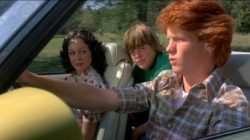 If there’s a real star to Drive-In, it’s the nostalgic experience of going to the drive-in, most of which is captured in the opening montage, then lovingly spoofed for the remainder. Debuting on the Alamo’s single screen is Disaster ’76, an Irwin Allen-esque epic that allows Amateau to directly parody Airport, The Towering Inferno, Earthquake, The Poseidon Adventure and Jaws in one fell swoop.
If there’s a real star to Drive-In, it’s the nostalgic experience of going to the drive-in, most of which is captured in the opening montage, then lovingly spoofed for the remainder. Debuting on the Alamo’s single screen is Disaster ’76, an Irwin Allen-esque epic that allows Amateau to directly parody Airport, The Towering Inferno, Earthquake, The Poseidon Adventure and Jaws in one fell swoop.
Quite the time capsule, Drive-In isn’t laugh-out-loud funny, but loaded with such goodhearted charm that I didn’t want it to end after 96 minutes. I suspect what kept it from clicking with the public at large is its flyover setting. So wall-to-wall are the country radio tunes and thick hick dialects, it may strike coastal viewers as intruding on an alien land where everyone speaks in similes, from “trickier’n diaperin’ Siamese twins” to “busier’n a belly dancer with a case of the crabs.”
Trust me: No matter where you live on the map, it’s a movie for people who love the movies. —Rod Lott

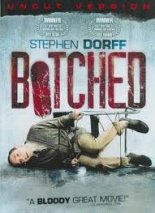
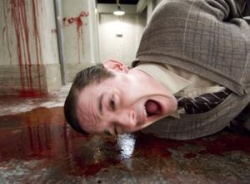

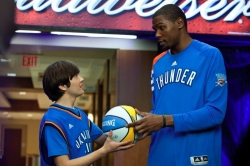 Therefore, Brian becomes a cocky and popular athlete, while his well-paid hero suffers “a slump.” Oh, if only the curse could be reversed! It can, of course, but how that comes to pass is an insult to viewers’ intelligence, making one long for the relative concrete logic of
Therefore, Brian becomes a cocky and popular athlete, while his well-paid hero suffers “a slump.” Oh, if only the curse could be reversed! It can, of course, but how that comes to pass is an insult to viewers’ intelligence, making one long for the relative concrete logic of 